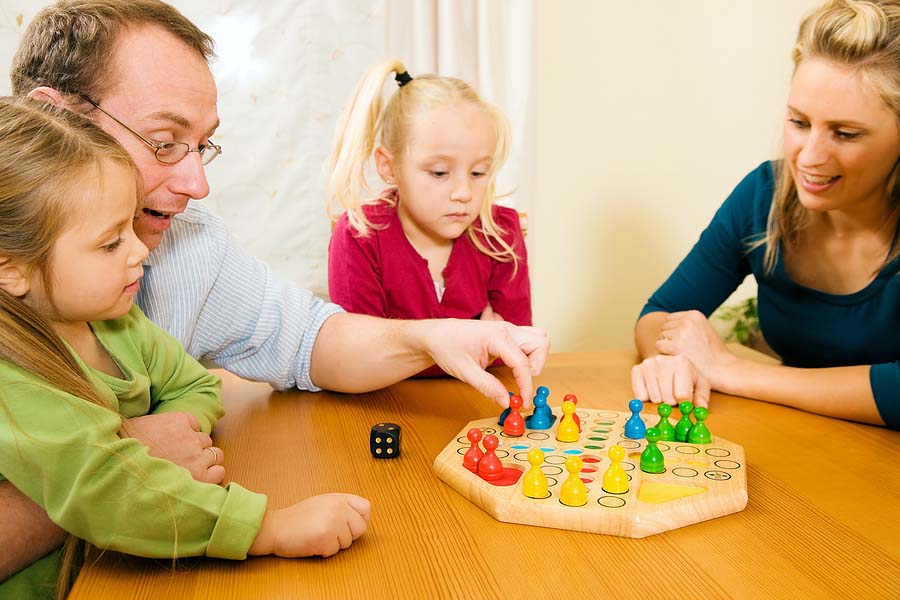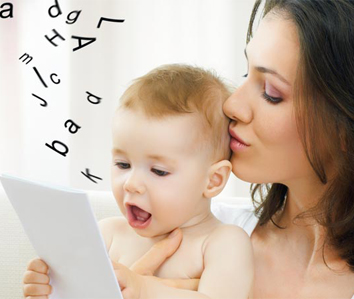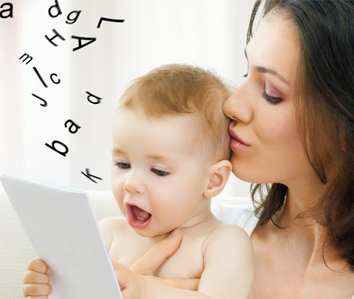What does (s) he understand?
- His or her complexity of understanding keeps extending. He / She now understands simple WHO? WHAT? And WHERE? Questions and hears you when you call from another room.
- This is the crucial age where hearing difficulties may become evident. If you are in a doubt of his/her hearing, it’s wise to consult an audiologist.
 What does (s) he speak?
What does (s) he speak?
- (S)he talks about many things to you, what happened in preschools, what type of play they did, how is teacher to him/her, what are his/her friends, what funny, and new (s)he experiences, and also his imaginations.
- His/her sentences are becoming longer and longer as (s) he combines four, five or more words. His /her speech is usually clear and fluent and easily understood by the strangers most of the time.
- They become very loud and unstoppable.
How can I help my child?
- Mix categories e.g. mix animals with picture of baby, cookies, ice cream. And make the child to sort them out and show what doesn’t belong to the category. Tell him/her that he is correct baby doesn’t belong to cat, dog, category because baby is not an animal.
- Draw, glue a car without wheels, favorite cartoon with a mistake, glue a dog in driving seat and talk about how silly the pictures and encourage him/her to talk about what is missing, and what is correct.
- Act out typical scenarios with the child like going to doctor with the pet, teacher and student, acting like the mother at home, cooking food, making baby dress up, superman. Allow her/him to guide you in acting. Be the student and let your child teach a lesson. Ask the child questions; make him repeat if you have not understood completely.
- Expand the child’s vocabulary by acting, storytelling, singing, filling the blanks. Talk about new games, new ideas you and your child can do and have fun.

- Find out a simple and interesting story book read line by line, ask simple WH questions (what, Where, Who, Why).Talk about favorite part in the story, in the cartoon. This is the best time to talk about favorite things with the child talk about his/her favorite game, food, rhymes and tell him/her also your choices.
- Bring your family album to the bed. Talk about the photo and ask the child can you remember this photo. Help him to explain what happened.
- Do silly mistakes in game, apologize for your mistakes, and ask his/her help to play correctly.


 sees around him/her. Use rhymes such as jonny jonny yes papa. Encourage the child to say hahahahaa/aaaaaa with you. Associate the object with sound e,g introduce the clock to the child, t-t-t-t-t clock, ding- dong- ding-dong .pi pi pi pi daddy car. Make him listen to the sounds of objects and create a sound associated with the object. mow mow mow mow cow. Use the sound like p-p-p-p-, m-m-m-m-, b-b-b-b-b, brooo-brooo, grrrr- ggrr while bathing, playing with toys, pampering him/her. These sounds will help him to learn better in preschool and kindergarten. Expand on words what the child says, for an example, if (s)he says car or sound likes car. Expand on words saying oh! yes it is a CAR, Biiig CAR, Big red CAR! Show the child big colorful picture book with large pictures. Name them, read aloud and talk about the picture. Wait your child to explore the picture, Ask him/her what is this and you answer. Make him/her point to picture Repeat the same several days. You would be surprised one day hearing(s)he names the picture.
sees around him/her. Use rhymes such as jonny jonny yes papa. Encourage the child to say hahahahaa/aaaaaa with you. Associate the object with sound e,g introduce the clock to the child, t-t-t-t-t clock, ding- dong- ding-dong .pi pi pi pi daddy car. Make him listen to the sounds of objects and create a sound associated with the object. mow mow mow mow cow. Use the sound like p-p-p-p-, m-m-m-m-, b-b-b-b-b, brooo-brooo, grrrr- ggrr while bathing, playing with toys, pampering him/her. These sounds will help him to learn better in preschool and kindergarten. Expand on words what the child says, for an example, if (s)he says car or sound likes car. Expand on words saying oh! yes it is a CAR, Biiig CAR, Big red CAR! Show the child big colorful picture book with large pictures. Name them, read aloud and talk about the picture. Wait your child to explore the picture, Ask him/her what is this and you answer. Make him/her point to picture Repeat the same several days. You would be surprised one day hearing(s)he names the picture.
 If parents feel that development is slow, they check their impression with the other parents, relatives, and their pediatrician. You probably get an answer such as Oh!! Don’t worry, he / she will outgrow it. Look at my child she was so quiet and now she is a chatter box, give him/her time.
If parents feel that development is slow, they check their impression with the other parents, relatives, and their pediatrician. You probably get an answer such as Oh!! Don’t worry, he / she will outgrow it. Look at my child she was so quiet and now she is a chatter box, give him/her time. You would feel guilty waiting and then finding out that I should have acted earlier. Waiting is so hard, why we have to be frustrated at last . We want the best for our child. What’s a parent to do?
You would feel guilty waiting and then finding out that I should have acted earlier. Waiting is so hard, why we have to be frustrated at last . We want the best for our child. What’s a parent to do? It’s hard to say the exact age when they hit speech and language milestones. It varies a lot on factors such as the child’s inborn ability to learn language, other skills the child is learning, the amount speech and language input he/she gets. and how others respond to his/her communication attempts .
It’s hard to say the exact age when they hit speech and language milestones. It varies a lot on factors such as the child’s inborn ability to learn language, other skills the child is learning, the amount speech and language input he/she gets. and how others respond to his/her communication attempts .